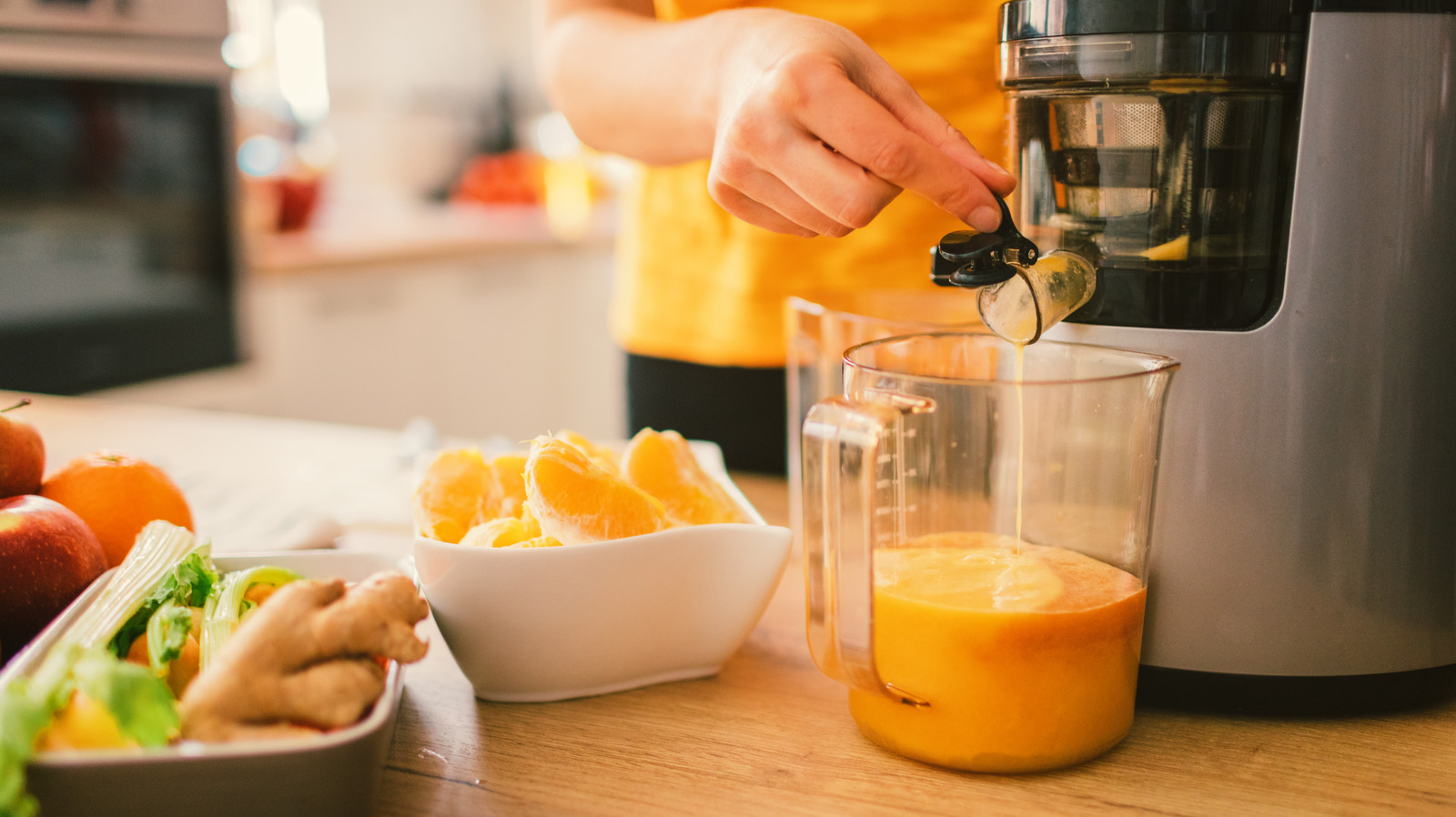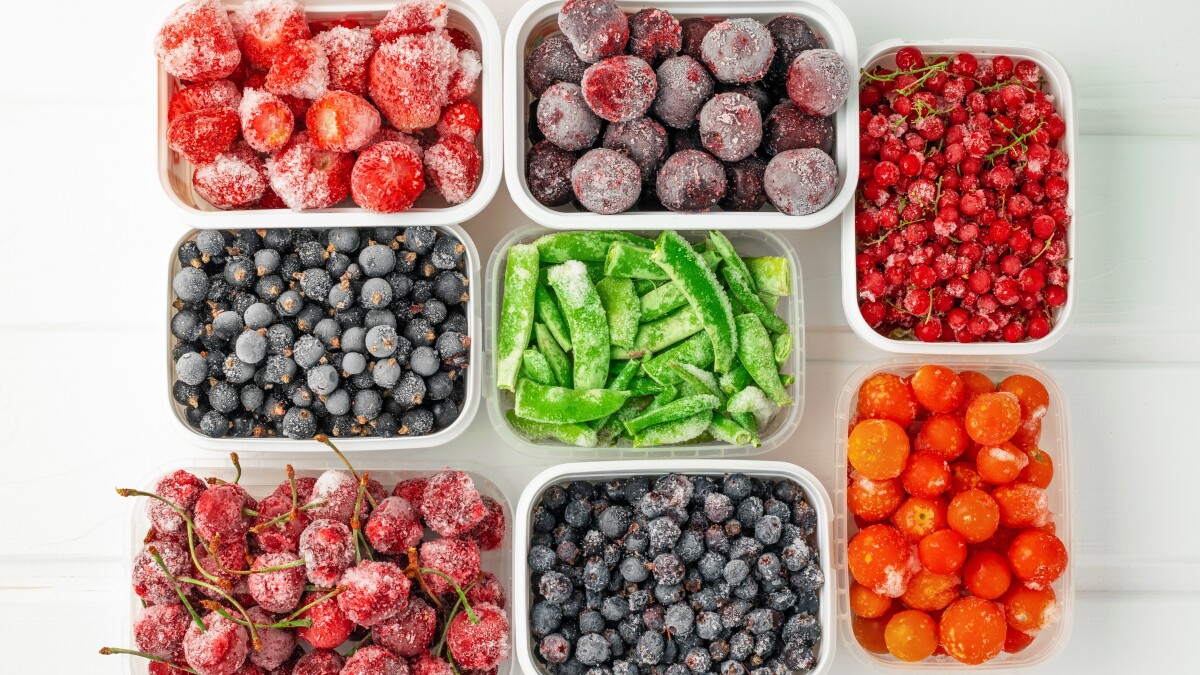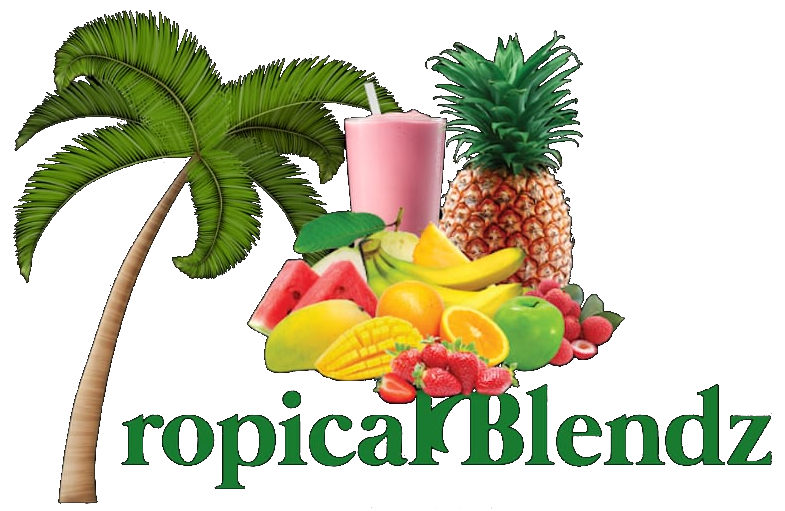
Introduction
The Popularity Of Juicing
Juicing has become increasingly popular in recent years as a way to consume fruits and vegetables in a convenient and refreshing form. Many people turn to juicing as a way to boost their intake of vitamins, minerals, and antioxidants. However, there is often confusion about whether frozen fruits and vegetables can be used for juicing, and if they will still retain their nutritional value and flavor.
The Benefits Of Using Fresh Produce For Juicing
Fresh fruits and vegetables are often considered the gold standard when it comes to juicing. They are naturally packed with nutrients and enzymes that are beneficial for our health. When juiced, they provide a concentrated dose of vitamins, minerals, and antioxidants. Additionally, fresh produce tends to have a vibrant and intense flavor, making the juices taste delicious and satisfying.
However, it is important to note that some of the healthy fiber is lost when juicing fresh fruits and vegetables. This is because the juice extractors separate the juice from the fiber-rich pulp and skins. While the juice still contains many beneficial nutrients, it lacks the filling fiber that helps regulate digestion and promote feelings of fullness.
Can You Juice Frozen Fruit And Vegetables?
When it comes to juicing, using frozen fruits and vegetables can be a convenient alternative to fresh produce. Here are some points to consider:
- Nutritional value: The freezing process can slightly diminish the nutrient content of fruits and vegetables, but the loss is generally minimal. Frozen produce can still provide a good amount of vitamins, minerals, and antioxidants.
- Convenience: Frozen fruits and vegetables are readily available year-round, which means you can enjoy a variety of juices regardless of the season. They are also pre-cut and washed, saving you time and effort in the preparation process.
- Flavor: While frozen fruits and vegetables may not have the exact same fresh flavor as their counterparts, they can still taste delicious in juices. The freezing process can actually help preserve the natural sweetness of fruits, resulting in flavorful and refreshing juices.
- Texture: Frozen fruits and vegetables have a softer and slushier texture when compared to fresh produce. This can add a nice consistency to blended smoothies and juices.
In conclusion, juicing with frozen fruits and vegetables can still provide a nutritious and flavorful way to consume a variety of nutrients. While they may not offer the same benefits as fresh produce in terms of fiber content, they are a convenient and accessible option for those who want to enjoy the benefits of juicing year-round.
Freezing Fruits And Vegetables: Nutrient Preservation
The Effect Of Freezing On Nutrient Content
Freezing fruits and vegetables is a common method of preservation that allows for longer storage and convenient use in juicing. While there may be some slight loss of nutrients during the freezing process, the overall impact on the nutrient content is minimal. Research has shown that fast freezing, which produces small ice crystals and causes less damage to the tissues, results in a better texture in freeze-thawed vegetables (Martínez-Romero et al., 2004; Rawson et al., 2012; Buggenhout et al., 2006).
Key Nutrients Found In Frozen Fruits And Vegetables
Frozen fruits and vegetables still retain many important nutrients that are beneficial for our health. Some key nutrients found in frozen produce include:
- Vitamins: Frozen fruits and vegetables are a good source of essential vitamins such as vitamin C, vitamin A, and vitamin K. These vitamins play important roles in promoting immune function, maintaining healthy skin, and supporting overall health.
- Minerals: Frozen produce also contains essential minerals like potassium, magnesium, and calcium. These minerals are important for proper nerve function, muscle contraction, and maintaining strong bones.
- Antioxidants: Fruits and vegetables are rich in antioxidants, which help protect the body against damage from harmful free radicals. Freezing does not significantly diminish the antioxidant content of these foods.
Overall, freezing fruits and vegetables is a practical way to preserve their nutritional value. While fresh produce may have a slight edge in terms of flavor and fiber content, frozen fruits and vegetables can still provide a convenient and nutritious option for juicing. Consider incorporating a variety of both fresh and frozen produce into your juicing routine to ensure a balance of flavors and nutrients.
Juicing With Frozen Fruit: Yes Or No?
The Ability Of Most Juicers To Handle Frozen Fruit
Most juicers on the market today have the capability to extract juice from frozen fruits. When fruits are frozen, the water content within them solidifies, making it easier for the juicer to break them down and extract the juice. However, it is important to note that different juicers may have varying degrees of success when it comes to juicing frozen fruits. Some juicers may struggle with harder or larger frozen fruits, while others may handle them with ease. It is recommended to check the specifications of your juicer to ensure it can handle frozen fruit.
Two Preferred Types Of Juicers For Frozen Fruit
While most juicers can handle frozen fruit to some extent, there are two types of juicers that are particularly preferred for juicing frozen fruits:
- Centrifugal Juicers: These juicers work by rapidly spinning a mesh basket to extract the juice from the fruits. They are known for their high-speed operation and are generally more affordable compared to other types of juicers. Centrifugal juicers can effectively juice most types of fruits, including frozen ones. However, they may not extract as much juice as other types of juicers, resulting in lower yield.
- Masticating Juicers: Also known as slow juicers or cold press juicers, masticating juicers use an auger to slowly crush and squeeze the fruits to extract the juice. They operate at a slower speed and generate less heat, which helps preserve the nutrients in the juice. Masticating juicers are generally more expensive but are highly efficient at extracting juice from frozen fruits. They can handle a variety of produce, including leafy greens and hard fruits.
In conclusion, most juicers have the ability to juice frozen fruits to some extent. However, centrifugal juicers and masticating juicers are the preferred options for juicing frozen fruit. Whether you choose to juice with fresh or frozen produce, it is important to prioritize nutrient preservation and choose high-quality fruits and vegetables for optimal juicing results.

Myth Busted: Fresh Vs Frozen Produce
Debunking The Misconception About Nutrient Loss In Frozen Produce
There is a common belief that fresh produce is superior to frozen when it comes to nutrient content. However, this is not necessarily true. In fact, frozen produce can sometimes have even more nutrients than fresh produce. The reason for this is that frozen fruits and vegetables are typically picked at their peak ripeness, when they are most nutrient-dense. On the other hand, fresh produce is often picked before it is fully ripe, which means that some nutrients may not have fully developed.
While it is true that some nutrients can be lost during the freezing and processing of fruits and vegetables, the overall nutrient content is still quite high. It is important to note that both fresh and frozen produce can experience nutrient degradation over time, so it is crucial to consume them as soon as possible after purchase.
The Importance Of Picking Fruits And Vegetables At Their Peak
One key factor that contributes to the nutrient content of fruits and vegetables is the timing of their picking. When produce is picked at its peak ripeness, it has the highest concentration of nutrients. This is true for both fresh and frozen produce. In contrast, produce that is picked before it is fully ripe may not have developed all of its nutrients yet.
It is worth noting that the nutrient content of produce can also be influenced by factors such as transportation time and storage conditions. Fresh produce may spend several days or even weeks in transit before reaching the store shelves, which can further contribute to nutrient degradation. On the other hand, frozen produce is typically flash-frozen shortly after harvest, which helps to preserve the nutrients.
In conclusion, the belief that fresh produce is always superior to frozen produce is a myth. While both fresh and frozen fruits and vegetables can offer excellent nutrient content, there are certain advantages to choosing frozen produce. Frozen produce is often picked at peak ripeness, which can result in higher nutrient levels. Additionally, freezing can help to preserve the nutrients in produce, making it a convenient and nutritious option, especially during the winter months when fresh produce may be less readily available.
Juicing With Frozen Produce: Tips And Tricks
Preparation Methods For Using Frozen Fruits And Vegetables In Juicing
- Thaw your frozen produce: Before juicing, it is important to thaw the frozen fruits and vegetables. This can be done by leaving them in the fridge overnight or using the defrost function on your microwave. Thawing the produce will ensure a smoother consistency in your juice.- Drain any excess water: Frozen produce tends to release water as it thaws, which can dilute the flavor of your juice. After thawing, make sure to drain any excess water from the fruits and vegetables before adding them to the juicer.- Mix with fresh ingredients: To enhance the flavor and nutritional value of your juice, consider combining the thawed frozen produce with fresh fruits and vegetables. This will help to balance out the flavors and add a variety of nutrients to your juice.
Enhancing Flavor And Texture With Frozen Produce
- Use frozen fruits for a slushy texture: If you prefer a thicker and slushier consistency in your juice, using frozen fruits can be a great option. Frozen berries, such as strawberries or blueberries, can add a delightful texture to your juice.- Combine different frozen fruits and vegetables: Experiment with different combinations of frozen fruits and vegetables to create unique flavors. For example, mix frozen pineapple with spinach for a tropical twist, or blend frozen mango with carrots for a refreshing and vibrant juice.- Add herbs and spices: To further enhance the flavor of your juice, consider adding herbs and spices. Fresh herbs like mint or basil can add a refreshing taste, while spices like ginger or cinnamon can bring warmth and depth to your juice.
By following these tips and tricks, you can enjoy the convenience and nutritional benefits of juicing with frozen produce. Remember to thaw the frozen fruits and vegetables beforehand, drain any excess water, and experiment with different flavor combinations to create delicious and nutritious juices.
Benefits Of Juicing Frozen Fruit
Convenience And Accessibility Of Frozen Fruits
- Frozen fruits are readily available in most grocery stores, making it easy to incorporate them into your juicing routine. You can enjoy the nutritional benefits of fruits even when they are out of season.- Frozen fruits are pre-cut and pre-washed, saving you time in the preparation process. This makes juicing with frozen fruit a convenient option for busy individuals who want to maintain a healthy diet.- Having a stash of frozen fruits in your freezer allows you to make impromptu juices whenever you want, without the need to visit the grocery store frequently.
Extended Shelf Life And Reduced Waste
- Freezing fruits and vegetables at their peak ripeness helps preserve their nutrients, so you can enjoy the same nutritional benefits as fresh produce.- Frozen fruits have a longer shelf life compared to fresh fruits, reducing the chances of spoilage and waste. This is especially beneficial if you tend to have fruits that go bad before you can consume them.- Using frozen fruits for juicing allows you to minimize food waste, as you only use the amount needed for each batch of juice. This can be particularly advantageous for individuals living alone or those who prefer single servings.
By utilizing frozen fruit for juicing, you can enjoy the convenience, accessibility, extended shelf life, and reduced waste. Thawing the fruits before juicing and experimenting with different flavor combinations will result in flavorful and nutritious juices. Incorporating frozen fruits into your juicing routine can be a simple and effective way to maintain a healthy lifestyle.
Recipes And Ideas For Juicing Frozen Fruit
Delicious Juice Combinations Using Frozen Fruits
- Tropical Paradise: Blend frozen pineapple, mango, and banana for a refreshing tropical juice packed with vitamin C and fiber.
- Berry Blast: Mix frozen strawberries, blueberries, and raspberries for a vibrant and antioxidant-rich juice.
- Green Goddess: Combine frozen spinach, banana, and pineapple for a nutrient-dense green juice that will boost your energy levels.
- Citrus Splash: Juice frozen oranges, lemons, and limes for a tangy and refreshing citrus drink that is high in vitamin C.
- Sweet and Spicy: Try a combination of frozen watermelon, jalapeno, and cucumber for a unique and invigorating juice with a kick.
Other Creative Ways To Incorporate Frozen Fruit In Juicing
- Smoothie Bowls: Blend frozen fruits with a splash of juice or milk to create a thick smoothie consistency. Pour into a bowl and top with your favorite toppings such as granola, nuts, and fresh fruit.
- Frozen Fruit Popsicles: Freeze your juiced fruits into popsicle molds for a healthy and delicious frozen treat.
- Fruit-infused Water: Drop frozen fruit cubes into your water to add a burst of flavor and natural sweetness.
- Fruit Ice Cubes: Blend your juiced fruits and freeze them into ice cube trays. Add these fruity ice cubes to your favorite beverages for a refreshing twist.
By incorporating these delicious juice combinations and exploring creative ways to use frozen fruit in your juicing routine, you can enjoy a variety of flavorful and nutrient-rich drinks. Experiment with different combinations and flavors to find your favorite recipes. Juicing with frozen fruit not only adds convenience to your juicing routine but also allows you to enjoy the benefits of fruits all year round.

Safety Considerations When Juicing Frozen Fruit
Proper Storage And Thawing Techniques For Frozen Produce
When juicing frozen fruit, it’s important to follow proper storage and thawing techniques to ensure that the fruits remain safe to consume. Here are some guidelines to keep in mind:
- Store frozen fruits in a freezer-safe container or bag to maintain their quality and prevent freezer burn.
- Keep the freezer temperature at or below 0°F (-18°C) to ensure that the frozen fruit stays fresh and retains its nutritional value.
- When thawing frozen fruit, it’s best to do so in the refrigerator. Place the frozen fruit in a bowl or container and let it thaw slowly overnight or for a few hours.
- Avoid thawing frozen fruit at room temperature, as it can lead to bacterial growth and compromise food safety.
- Once thawed, use the fruit promptly and do not refreeze it. Thawed fruits should be consumed within a day or two to ensure optimal safety and quality.
Potential Risks And Precautions To Be Aware Of
While juicing frozen fruit can be a convenient and nutritious option, there are some safety risks and precautions to be aware of:
- Contamination: Ensure that the frozen fruit is from a reputable source and has been properly handled and stored to minimize the risk of contamination.
- Freezer burn: Frozen fruit that has been improperly stored or exposed to air for a long time may develop freezer burn, which can affect its taste and texture. Discard any fruit with signs of freezer burn.
- Allergens: If you or someone you’re preparing the juice for has food allergies, be cautious about cross-contamination. Clean cutting boards, utensils, and juicers thoroughly to prevent allergen exposure.
- Quality: While frozen fruit can retain its nutritional value, some textural changes may occur during freezing and thawing, which may affect the overall taste and appearance of the juice.
By following proper storage and thawing techniques and being aware of potential risks, you can enjoy the convenience and nutritional benefits of juicing frozen fruit while ensuring its safety. Remember to always prioritize food safety and quality when incorporating frozen fruit into your juicing routine.
Safety Considerations When Juicing Frozen Fruit
Proper Storage And Thawing Techniques For Frozen Produce
When juicing frozen fruit, it’s important to follow proper storage and thawing techniques to ensure that the fruits remain safe to consume. Here are some guidelines to keep in mind:
- Store frozen fruits in a freezer-safe container or bag to maintain their quality and prevent freezer burn.
- Keep the freezer temperature at or below 0°F (-18°C) to ensure that the frozen fruit stays fresh and retains its nutritional value.
- When thawing frozen fruit, it’s best to do so in the refrigerator. Place the frozen fruit in a bowl or container and let it thaw slowly overnight or for a few hours.
- Avoid thawing frozen fruit at room temperature, as it can lead to bacterial growth and compromise food safety.
- Once thawed, use the fruit promptly and do not refreeze it. Thawed fruits should be consumed within a day or two to ensure optimal safety and quality.
Potential Risks And Precautions To Be Aware Of
While juicing frozen fruit can be a convenient and nutritious option, there are some safety risks and precautions to be aware of:
- Contamination: Ensure that the frozen fruit is from a reputable source and has been properly handled and stored to minimize the risk of contamination.
- Freezer burn: Frozen fruit that has been improperly stored or exposed to air for a long time may develop freezer burn, which can affect its taste and texture. Discard any fruit with signs of freezer burn.
- Allergens: If you or someone you’re preparing the juice for has food allergies, be cautious about cross-contamination. Clean cutting boards, utensils, and juicers thoroughly to prevent allergen exposure.
- Quality: While frozen fruit can retain its nutritional value, some textural changes may occur during freezing and thawing, which may affect the overall taste and appearance of the juice.
By following proper storage and thawing techniques and being aware of potential risks, one can enjoy the convenience and nutritional benefits of juicing frozen fruit while ensuring its safety. It is important to prioritize food safety and quality when incorporating frozen fruit into the juicing routine.
Conclusion
Recap Of The Benefits And Considerations Of Juicing Frozen Fruit
In conclusion, juicing frozen fruit can be a time-saving option that provides nutritional benefits. Here’s a recap of the main benefits and considerations:
- Frozen produce allows for longer storage, making it convenient and accessible whenever needed.
- Freezing helps preserve the nutritional value of fruits and vegetables.
- Juicing frozen fruit can be a great way to enjoy seasonal fruits all year round.
- Proper storage and thawing techniques are crucial to maintain food safety while juicing frozen fruit.
- It is important to be aware of potential risks such as contamination, freezer burn, allergens, and textural changes.
Encouragement To Experiment And Enjoy The Versatility Of Frozen Produce In Juicing
As you explore juicing with frozen fruit, don’t be afraid to experiment with different combinations and flavors. Frozen produce offers a wide variety of options, allowing you to create delicious and nutritious juice blends. Whether you’re looking to boost your intake of vitamins and minerals or simply want a refreshing drink, juicing frozen fruit can be a convenient and healthy choice. So go ahead, stock up on your favorite frozen fruits and get creative in the kitchen!
FAQ: Can You Juice Frozen Fruit? Extracting Nutrients from Frozen Produce
Q: Can you juice frozen fruit?
A: Yes, you can absolutely juice frozen fruit! In fact, juicing frozen fruit can be a convenient and practical way to enjoy freshly made juices any time.
Q: Why juice frozen fruit instead of fresh fruit?
A: There are a few reasons why juicing frozen fruit can be advantageous. Firstly, frozen fruit is often more readily available year-round, so you can enjoy your favorite fruits even when they are out of season. Secondly, frozen fruit can be more cost-effective, especially when buying in bulk. Finally, freezing fruit can help preserve its nutritional value, making it an excellent choice for juicing.
Q: Does juicing frozen fruit affect the nutrient content?
A: When frozen fruit is juiced properly, it can still retain most of its nutrients. However, it is important to note that some heat-sensitive vitamins, such as vitamin C, may be slightly reduced during the freezing and thawing process. Nevertheless, the overall nutrient content of frozen fruit juice remains highly beneficial.
Q: How do you juice frozen fruit?
A: To juice frozen fruit, simply allow it to thaw for a few minutes until it is soft enough to juice. Add the frozen fruit to your juicer along with any other fresh ingredients you desire, such as vegetables or herbs. Then, let the juicer do its work, extracting all the flavorful and nutritious juice from the frozen fruit.
Q: Can you mix frozen and fresh fruit together when juicing?
A: Absolutely! Mixing frozen fruit with fresh fruit is a great way to create unique flavor combinations and enjoy the benefits of both. Combining different textures and temperatures can also add an interesting twist to your juices.
Q: Do you need to add liquid to juice frozen fruit?
A: While some fruits have higher water content and may release enough liquid on their own, adding a splash of liquid like water or coconut water can be helpful when juicing primarily frozen fruit. This will ensure a smoother juice consistency and facilitate the juicing process.
Q: Are there any fruits that shouldn’t be juiced when frozen?
A: While most fruits are suitable for juicing when frozen, some fruits like bananas and avocados may have a different texture when thawed and may not produce desirable results in a traditional juicer. However, you can still blend them into smoothies along with other frozen or fresh fruits and enjoy their creamy goodness.
Q: Can you store frozen fruit juice?
A: Yes, you can store frozen fruit juice for later use. To preserve its freshness and nutrient content, pour the juice into an airtight container or an ice cube tray and store it in the freezer. When ready to consume, thaw the juice in the refrigerator or use it as an ingredient in smoothies or other recipes.
Juicing frozen fruit can be a nutritious and convenient way to enjoy the flavors of various fruits throughout the year. By following simple steps, you can extract the goodness from frozen produce while embracing creativity in your juicing endeavors.

Tropical Blendz Café and Juice Bar is a safe and clean environment where we provide immune-boosting natural juices, smoothies, shakes, authentic Caribbean cultural foods, and much more. Our juices are made from all-natural, unique fruits, vegetables, and herbs.